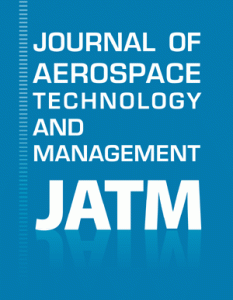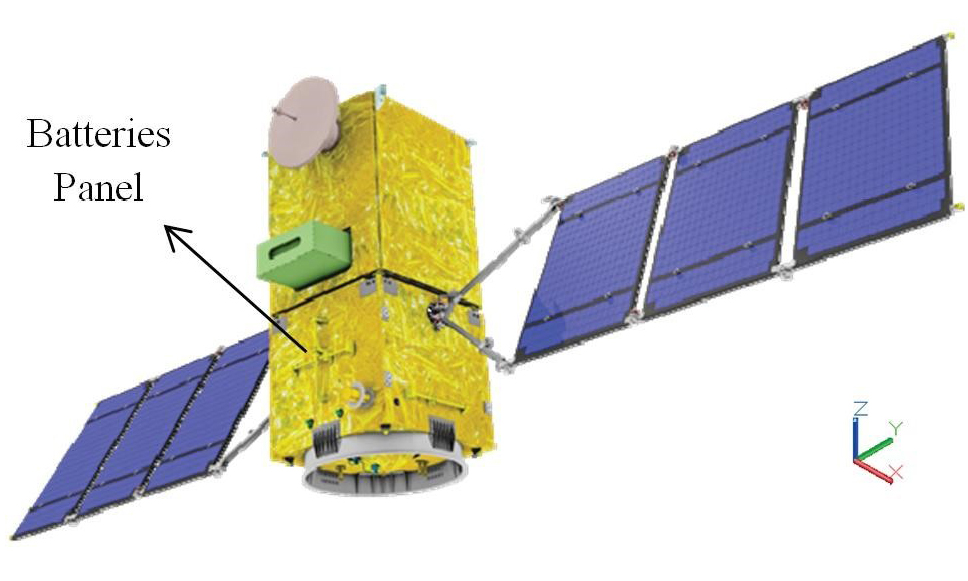By Rosa Moraes, Scientific Journalist, Linceu Editorial, São José dos Campos, SP, Brazil
Thermal control is fundamental to the proper functioning of satellites. These have temperature restrictions for optimal performance, and may not function properly when not operating under these specific conditions. Hence the importance of thermal control research and development for these systems.
The Journal of Aerospace Technology and Management (vol. 11), brings the article “Multiobjective and multicase optimization of a spacecraft radiator”, where Brazilian scientists from the National Institute for Space Research (Instituto Nacional de Pesquisas Espaciais – INPE) and the Technological Institute of Aeronautics (Instituto Tecnológico de Aeronáutica – ITA) have developed a multi-objective research on the optimization of spacecraft thermal control systems. The study was developed in 2017.
Amazonia-I is the first satellite to use the Brazilian Multi Mission Space Platform (MMP) and was developed under the coordination of INPE and the Brazilian Space Agency (Agência Espacial Brasileira – AEB). An illustration and technical data of the satellite are detailed in the article, emphasizing its thermal control systems. The experiments used the M-GEO optimization algorithm as done by Muraoka et al. (2006), coupled to a commercial thermal analysis software through a customized spreadsheet interface, that sets the parameters, controls the execution and retrieve the results, embodying the optimization algorithm.
Figure 1. Amazonia-1 satellite.
The study brings together previous findings from aerospace radiator optimization scholars. This review concludes the importance of a multi-objective approach to the problem. In the study, the solution adopted was to install a fin perpendicular to the battery panel. This then acts as a solar collector, demonstrating an innovative solution through design optimization.
Weight reduction and energy consumption are important and are directly associated with satellite costs (GILMORE, 2002). In this case, for the solution to be effective, possible coatings have been considered to satisfy the temperature constraints required for maximum device performance. Thermal Desktop® and SINDA / FLUINT thermal software were coupled to Excel®, and have different options of coatings were considered.
The article presents some viable solutions to the problem, highlighting the need to consider the final impact on the system as a whole when choosing the appropriate radiator configuration. Thus, the proposed solutions not only prove viable in the context of the optimization problem presented, but also signify a considerable improvement in heat savings over non-optimized radiator designs.
References
GILMORE, D.G. (ed.). Spacecraft thermal control handbook. El Segundo: The Aerospace Press, 2002.
MURAOKA, I., et al. Stochastic spacecraft thermal design optimization with low computational cost. Journal of Spacecraft and Rockets [online]. 2006, vol. 43, no. 6, pp. 1248-1257, e-ISSN: 1533-6794 [viewed 14 August 2019]. DOI: 10.2514/1.20066. Available from: https://arc.aiaa.org/doi/abs/10.2514/1.20066
To read the article, access it
SILVA, D.F., et al. Multiobjective and multicase optimization of a spacecraft radiator. J. Aerosp. Technol. Manag. [online]. 2019, vol. 11, e0518, ISSN: 2175-9146 [viewed 14 August 2019]. DOI: 10.5028/jatm.v11.1000. Available from: http://ref.scielo.org/xsvfrt
External link
Journal of Aerospace Technology and Management – JATM: <http://www.scielo.br/jatm>
Como citar este post [ISO 690/2010]:

















Recent Comments